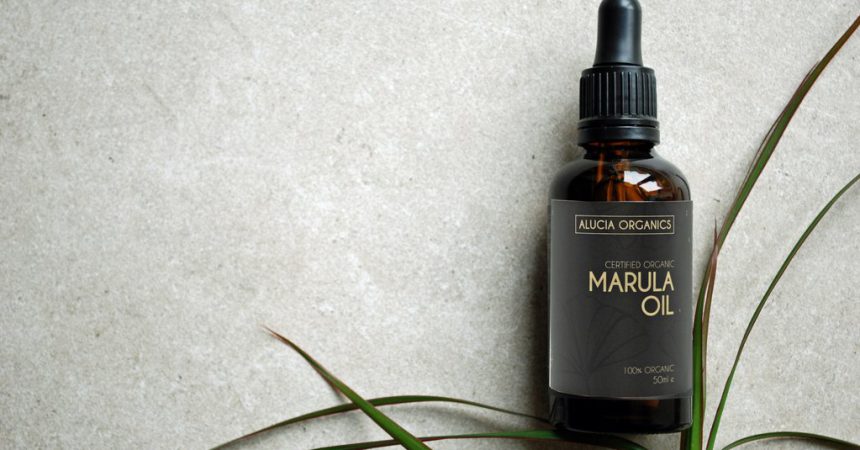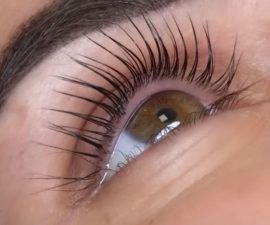Marula oil is often compared to the popular argan oil – mostly in terms of properties. It is a universal, natural, antioxidant cosmetic. How marula oil works? How can you use it in beauty care?
In cosmetology, oils are getting more and more common. Among the African ones, marula oil is one of the top choices, extracted from the fruit of the tree bearing the same name (Sclerocarya Birrea). It is serious competition for the Moroccan argan oil which is included in nearly every cosmetic now.
Marula Oil vs Argan Oil
The winner – in the argan and marula fight – can’t be taken for granted. They both ensure complex care and a set of benefits that you may get interested in. Before choosing one of them, we should learn the similarities and differences.
In what way are marula oil and argan oil different?
- Both oils come from Africa yet marula oil is extracted from wildly-growing plants.
- Marula oil has more oleic acid so it is better at nourishing and moisturising.
- Even though both oils excellently regenerate and rejuvenate, marula is lighter for skin.
- They have a golden color but the scent is different – marula gently smells of nuts.
Marula oil – characteristics
You can recognize it by something more than the aroma of nuts (delicate, pleasant and memorable). It has a very lightweight consistency so it is absorbed immediately and doesn’t leave a greasy coat on the skin. Additionally, marula oil lasts very long and keeps its properties for a very long time. You just need to store it in a cool, dry and shadowy place.
Do you know what marula oil hides inside? A full set of truly valuable nutrients: lots of omega-9 fatty acid, antioxidant vitamin E, vitamin C and flavonoids.
Both the properties of marula oil (especially, its lightweight consistency) and its ingredients make it popular in cosmetology. For body and face skin, for hair, scalp oil treatment, nails and even chapped lips or weak lashes.
The action of marula oil
What are the properties of marula oil?
Due to the content of a few antioxidants, it slows down ageing processes and prevents wrinkles from occurring too early. However, the main aim is keeping the steady level of moisture of the skin. Fatty acids, present in marula oil, reinforce the natural hydro-lipid layer thus the level of hydration – so essential for our health and beauty – stays the same.
Moreover, it is a natural UV filter. Marula oil, applied to skin, protects from the damaging UV radiation, regenerating at the same time. It is recommended for anti acne treatment because it contains nourishing flavonoids and supports the cellular renewal. Not only does it enhance the skin repair but also upgrades its suppleness and elasticity by stimulating the synthesis of collagen.
Used regularly, marula oil is a remedy for pigmentation spots, stretch marks and cellulite. It reduces the skin inflammation, supports skin regeneration and doesn’t clog the pores. Additionally, it evens out the skin tone and adds resilience. It is a remedy for many skin problems.
Perfect for hair oil treatments
Are you looking for an oil that will condition your hair and won’t weight it down or leave it greasy? Among natural oils, it’s hard to find one which tops marula oil. It is also a competitor for macadamia nut oil, known as the vanishing oil (due to the incredible ability to adapt to the skin).
Why applying marula oil to hair pays off?
- It makes hair softer to the touch.
- It improves moisture and nourishes every strand.
- Not only does it smooth the hair but also brings back shine.
- It tames the unruliest strands.
- It protects from the sunlight, frost and heat.
- It speeds up the blow-dry and styling routine.
- It prevents static hair.
- It defines delicate waves and curls.
- Marula oil ensures hair vitality and youthfulness.
Marula is adored by… elephants
Eventually, a fun fact! Similarly to women who love marula oil in hair care, marula is adored by elephants. The stunning aroma of marula tree fruit attracts these animals. They make long distances to shake the marula fruit off the trees (breaking the branches and damaging the trunks at the same time; luckily, marula trees quickly rebuild the damage). The elephants pick up both fresh fruit and the one that is already fermented. As a result, around the marula trees, we can often meet… drunk elephants!




Leave a Reply